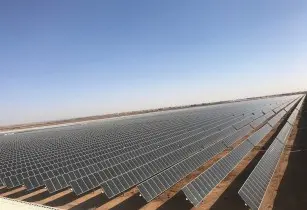The International Renewable Energy Agency (IRENA) has published a new report in which it has identified a series of policy measures that can help advance the energy transition towards renewable energy in Jordan
The ?Renewables Readiness Assessment: The Hashemite Kingdom of Jordan? ? developed in co-operation with Jordan?s Ministry of Energy and Mineral Resources, suggests opportunities exist to deepen private sector engagement in national efforts to reach a 31% share of renewables in total power by 2030.
?The recommendations of this report comply with the newly issued Energy strategy 2020-2030 and its action plan,? said Engineer Hala Zawati, minister of energy and mineral resources in Jordan. ?We are fully aware that to achieve all these ambitious targets, a strong partnership between the public and private sectors is needed. We are also eager to work with international friends and partners to make renewable energy a main pillar of the Jordan energy sector.?
The report presents policy action areas to increase energy security and boost supply diversity through the accelerated uptake of renewables and includes ideas to boost end-user electrification and increase the availability of energy transition investments from domestic institutions.
Jordan?s share of electricity from renewables grew from almost zero in 2014 to around 20% in 2020 thanks to enabling frameworks and policies that have supported the deployment of renewable energy technologies, including solar photovoltaic (PV) and onshore wind.
?Jordan boasts significant renewable energy resource potential that if realised will reduce consumer energy costs, improve national energy security, create jobs and stimulate sustainable growth-boosting post-COVID-19 economic recovery efforts,? said IRENA director-general Francesco La Camera. ?This report highlights a series of policy and regulatory measures that will allow Jordan to build on its energy transition progress to date and align it with 2030 national decarbonisation goals.?
Capacity building in local financing institutions and project developers can drive their engagement in the energy transition, the report says, while helping the country to meet its needs in important areas such as the build-out of electric charging infrastructure for the transport system.
Challenges associated with integrating higher shares of renewables in Jordan can be addressed by building and upgrading transmission and distribution infrastructure, deploying storage, promoting demand-side management and incentivising electrification of heating, cooling and transportation.
Renewables Readiness Assessment: Jordan lists concrete recommendations around the following seven action areas:
-Provide the conditions for renewables to grow in the power sector
-Foster continued growth of renewable power generation
-Plan for the integration of higher shares of renewable power
-Incentivise the use of renewables for heating and cooling
-Support renewable options for transport and mobility
-Catalyse renewable energy investment
-Strengthen local industries and create jobs in renewables.







